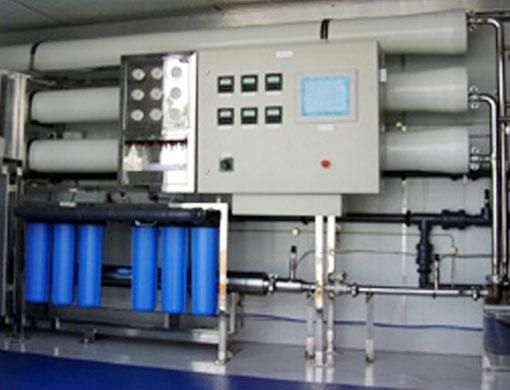A look at how the UAE plans to cope with depreciating resources and the increasing demand for water
Since the UAE is located in an arid zone, the country is dependent on desalination and recycling wastewater to meet its water demands.
"Recycled water can be used in different industries and for irrigation purposes, but desalination is the main option available to produce potable water in the UAE. Fresh water produced by recycling waste water costs less than desalinated sea water," says Bassem Halabi, Group Business Development Director, Metito Overseas.
The downside of desalination is that it is not a long-term or an environmentally friendly option.
"Desalination consumes energy which results in pollution. The power generation required for desalination is a polluting process and dries up resources," says Arun Kumar Sekhar, Managing Director, Global Engineering Systems.
Desalination comprises 80 to 90 per cent of the UAE's water supply and the rest comes from ground water, which is also running out rapidly.
"In the GCC region, Oman has the most stringent laws when it comes to governing ground water. Each well that is bored in the country is accounted for and the government keeps an inventory for it," says Sekhar.
Corodex Industries is a Dubai-based desalination company that specialises in manufacturing water desalination and purification plants and packaged wastewater treatment plants.
"We recently won a project by Palm Water for the supply, installation, operation and maintenance of a two membrane bioreactor (MBR) unit for two years, for wastewater treatment with a capacity of 500 cmd each.
"The EFLO MBR sewage treatment systems will be installed on the Palm Jumeirah Island and will be used to treat wastewater," says R. Mohanned Awad, Group Marketing Officer, Concorde-Corodex Group.
Apart from these private efforts, other projects are also in the pipeline to recycle water in the UAE. At the public sector level, wastewater is being recycled so that it can be used in landscape irrigation.
Privatising water services may result in a more efficient use of water and an initiative has been made in this direction in Abu Dhabi.
"Private entities are pushing for more use of recycled water to conserve expensive desalinated water and restrict it to potable uses.
"Companies such as Palm are treating wastewater and re-using it in district cooling. In Qatar for example, the government is looking into the possibility of treating wastewater and re-injecting it into the aquifer to increase the strategic underground water reserves and supplement their desalinated water.
"Unfortunately, apart from the normal treatment of wastewater and building more desalination plants there do not seem to be any plans by the UAE government to further develop its water resources," says Halabi.
According to Sekhar, the water situation is critical and needs immediate attention.
"Future generations will have no option but to drink treated sewage water. The process has already started in Singapore with NeWater which is reclaimed water produced by the country's public utilities. Properly treated sewage is visually indistinguishable from drinking water," he says.
Grey water is a term given to water that is left over from use in washbasins and showers. This water can be re-used to flush toilets or in cooling towers.
"This concept has been popular in various parts of the world for a long time now, but it needs government backing to become popular in the UAE," says Sekhar.
Using inexpensive attachments for faucets, showers and flush tanks to minimise the water flow can also save water.
Conserving water is of utmost importance as the UAE has the highest per capita consumption of water in the world, according to a report published in the Gulf News in April, "On an average, residents in the UAE use about 110 gallons of water daily," says Aisha Al Abdooli, head of the operations department for the sewage treatment plant in Dubai Municipality, in the report.
By creating awareness of the suitability, safety and advantages of reusing treated sewage or grey water; the walk towards a dry future can be halted.













